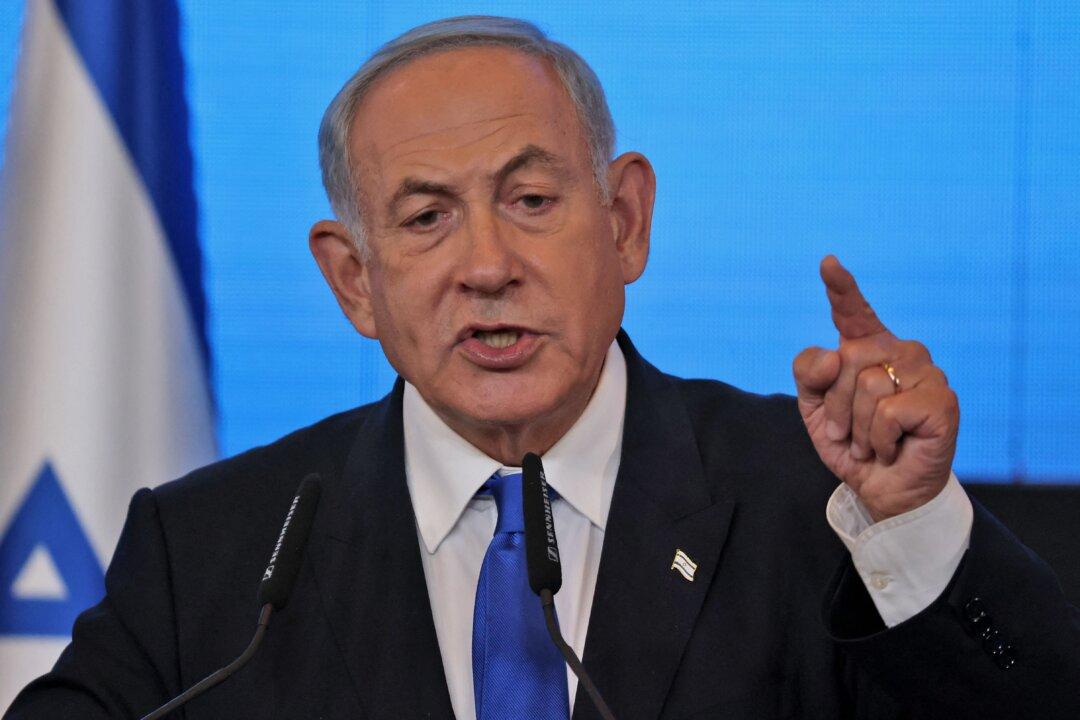HAIFA, Israel—Former Israeli Premier Benjamin Netanyahu is poised to return to power, claiming a “huge vote of confidence” from voters and declaring that his coalition of conservative parties is on the cusp of an election win.
“The people want a different way. They want security,” Netanyahu said. “They want power, not weakness. ... They want diplomatic wisdom, but with firmness.”





